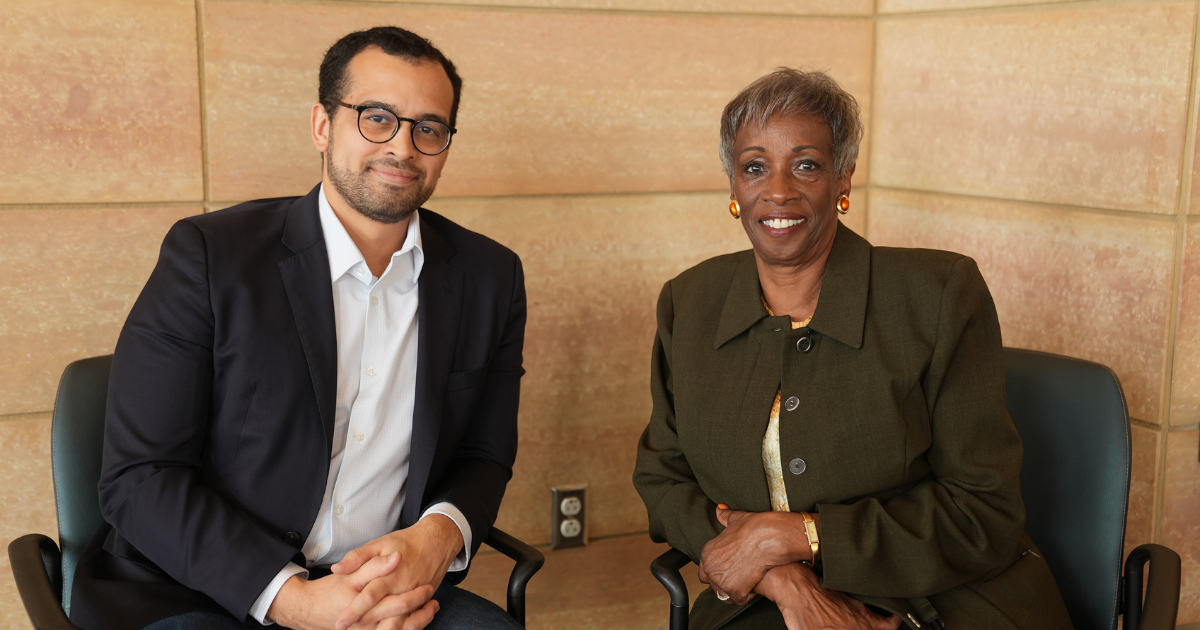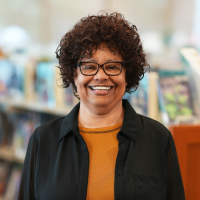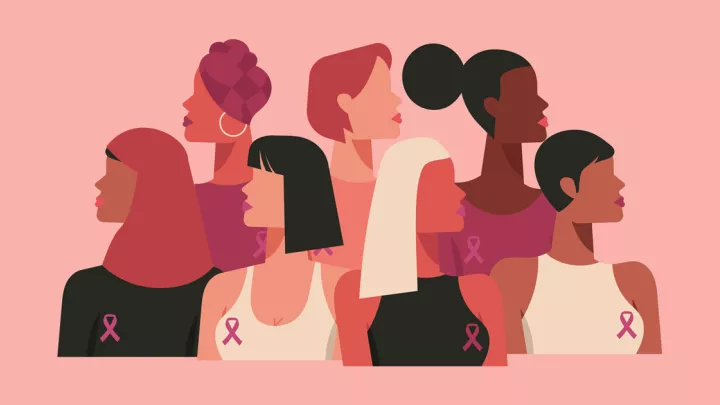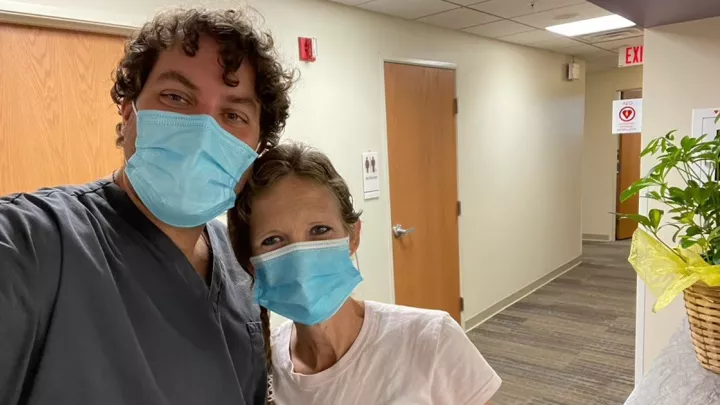Breast Health Navigator Program breaks down barriers to care

Phyllis Mitchell-Butler is a volunteer breast health navigator and helps coordinate other navigators for the Nebraska Breast Health Navigator Program. She believes she is doing exactly what she is supposed to be doing – helping other women in her community in the fight against breast cancer.
She calls it her “labor of love.”
“I had been looking for something different and more rewarding to do,” says Mitchell-Butler. “When I heard they were looking for someone to fill this position, I jumped at it.”
As a breast cancer survivor of more than 15 years, Mitchell-Butler knows what it’s like to receive a breast cancer diagnosis. She still remembers those feelings of distraught and despair after her diagnosis. And she understands the importance of a strong support system to provide hope, encouragement and help when needed.
Today, she helps serve as that support system for others who are newly diagnosed with breast cancer through her work with the Nebraska Breast Health Navigator Program. Mitchell-Butler is one of two administrative navigator coordinators, along with Julia Weathers. “This is such a needed program, and I’m so glad I can be part of it.”
The program was launched in early 2023 to eliminate barriers to care for individuals diagnosed with breast cancer, particularly those of color, minorities and underserved communities.
Support is provided by trained peer breast cancer survivors, who are community members with similar culture, race or ethnicity as the patients they support. Their goal is to help patients find access to health care resources. This might involve guiding them to trusted sources of information about cancer treatment, helping them find resources for transportation, child care issues and financial hurdles, accompanying them to doctor visits or simply being a listening ear.
“We believe this program is critical in helping us eliminate barriers among minority women in our community,” says Juan Santamaria, MD, Nebraska Medicine surgical oncologist. “We are seeing higher breast cancer rates and deaths among minority populations, especially African American women,” Dr. Santamaria says. “This may be due to various social barriers, including lack of understanding, distrust, transportation and lack of access to medical care. By using peers within the community to help them navigate their journey, we hope to be more successful at breaking down those barriers.”

Lillian Scott, a 71-year-old African American woman, was diagnosed with breast cancer in June after feeling a small lump on her breast. A mammogram and biopsy confirmed it was cancer. Scott has a long history of breast cancer in her family, so she has always been diligent about performing breast self-exams and getting annual mammograms. Fortunately, this diligence helped her detect the lump very early, significantly improving her expected outcome. Even so, the news still shook her, leaving her frightened and uncertain about the future.
Having a tight-knit support system of family and friends, as well as a breast health navigator, has been critical in helping her through the ups and downs. When a breast health navigator called her to offer assistance and support, to Scott’s surprise, it was Mitchell-Butler, who grew up in a nearby neighborhood. The two have mutual friends and have crossed paths at social events throughout the years.
“It was so comforting to talk to someone I knew who had been through it,” says Scott. “I felt like I wasn’t alone anymore.”
The two have continued to talk and compare notes throughout Scott’s treatment. “It’s just good knowing someone is there who can provide answers to my questions and encouragement when I’m feeling down.”
Scott underwent lumpectomy surgery to remove the lump on July 5. This was followed by radiation in the fall. “Phyllis called to check on me the next day after surgery,” recalls Scott. “She’s always checking in and asking me what I need. I’m so grateful for her.”
Mitchell-Butler realizes the importance of those calls and touch points. “I’m her sounding board,” she says. “When you talk to someone who’s been through it, there’s something calming about it. You know they’ve been through it, and they have survived. It changes your outlook.”
Mitchell-Butler says her new role has been incredibly fulfilling, and she is fully committed to doing what she can to help other women going through this difficult time. She knows from her experience that support, understanding, access to care and follow-through mean better outcomes for her peers.
“There’s nothing I won’t do for Lillian or my other ladies, whether I do it myself or find the resources to make it happen,” Mitchell-Butler says. “I will meet them for lunch, run errands, find transportation or meet them at their doctor appointment.”
When she was going through her battle with cancer, a breast health navigator program did not exist. But a friend introduced her to a program called “My Sister’s Keeper,” a support group for African American women diagnosed with cancer. This group, along with her mother, became her pillars of strength. “I extracted so much strength from my mother and the ladies in this group. I’ve never forgotten how important their support was for me. Now it’s my turn to give back.”
Dr. Santamaria says this program is so valuable for these women. “When someone is faced with health care needs that are too difficult to navigate or understand, they may become scared. We hope this program will prevent that from happening.”
Interested in learning more?
Learn more about the Nebraska Breast Health Navigator Program and how you can provide support.






